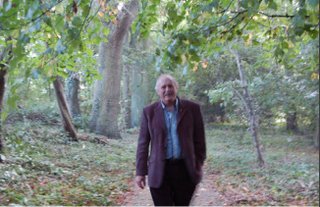Ed Brayton has declared himself one of the leading members of the Neville Chamberlain School. And now, John Lynch and Pat Hayes have joined the Ed Brayton team.
Me and PZ are on the side of science and rationalism.
Young Earth Creationsts (YEC's) and Intelligent Design Creationists (IDiots) are anti-science because they propose explanations of the natural world that conflict with science. But they're not alone in doing that. Many of the so-called Theistic Evolutionists also promote a version of evolution that Darwin wouldn't recognize. They are more "theist" than "evolutionist."
For some reason the Neville Chamberlain team is willing to attack the bad science of a Michael Denton or a Michael Behe but not the equally—and mostly indistinguishable—bad science of leading Theistic Evolutionists. Isn't that strange?
Public understanding of science will not be advanced by people like Francis Collins, Simon Conway Morris, and Ken Miller. They are subverting science in order to make it conform to their personal religious beliefs. (Which, by the way, conflict.) They are doing more harm to science than those who oppose it directly from the outside because the Theistic Evolutionists are subverting from within. It is sad that they are being supported by people who should know the difference between rationalism and superstition.
Is the appeasement strategy working? Of course not, but the most amazing thing is happening. The Neville Chamberlain School thinks it is winning in spite of the fact that leading politicians oppose evolution; most schools don't teach evolution; and the general public doesn't accept evolution. Talk about delusion. The appeasers think we should continue down the same path that led us to this situation. They think we should continue to compromise science in order to accommodate the religious moderates.
PZ Myers is only the most recent in a long list of people who have noticed that the good guys are not winning ...
Now, what is this winning strategy that Ed's Team is pushing? It seems to be more of the same, the stuff that we've been doing for 80 years, accommodating the watering down of science teaching to avoid conflict with religious superstition…the strategy that has led to a United States where a slim majority opposes the idea of evolution, and we're left with nothing but a struggle in the courts to maintain the status quo.Hallelujah! Right on, brother.
I don't know why this is so hard to understand. We are not winning. We are clinging to tactics that rely on legal fiat to keep nonsense out of the science classroom, while a rising tide of uninformed, idiotic anti-science opinion, tugged upwards by fundamentalist religious fervor, cripples science education. Treading water is not a winning strategy. I'm glad we're not sinking, and I applaud the deserving legal efforts that have kept us afloat, but come on, people, this isn't winning.









